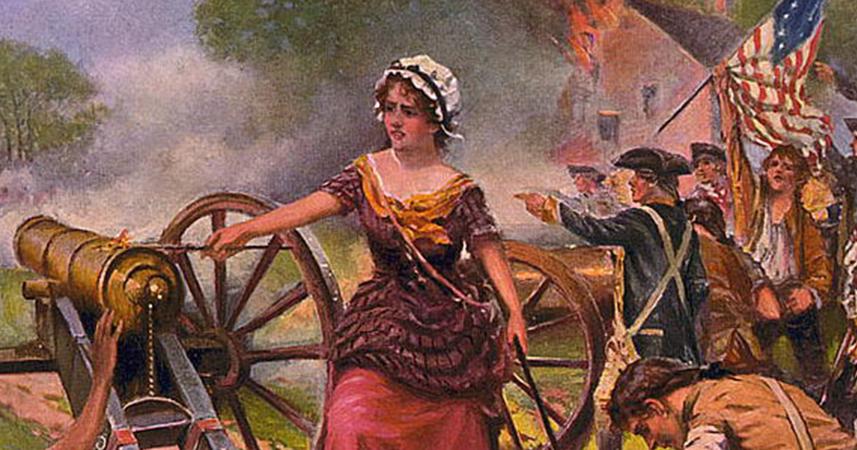George Washington is widely credited with turning the tide of the Revolutionary War on Christmas night, 1776. Under the cover of darkness, he led 2,400 soldiers across an ice-choked Delaware River and surprised an enemy encampment in Trenton the next morning.
More than a year-and-a-half into the war, the Continental Army earned its first victory that day. A string of others quickly followed over the next few days.
Washington deserves the praise that followed. But the war dragged on for nearly six more years, and there were many turns along the way when the American cause appeared lost. So, more accurately, it was the efforts of many that enabled the Continental Army to persevere.
However, many historians to this day have overlooked a sizable segment of those largely anonymous heroes: the women who followed the troops and helped support their day-to-day life, which was often as much of a struggle as the battles themselves thanks to a general lack of food, difficult weather, and a poor understanding of how disease spread.
Thankfully, the women of the war are gradually beginning to receive some love.

In honor of Women’s History Month, Washington Crossing Historic Park is presenting a lecture by Carrie Fellows, titled “She Had a Husband in the Camp: Following the Army During the War for Independence,” that will shed more light on these women, who are often referred to as “camp followers.”
The lecture will take place March 27, at 1:30 PM, in the Visitor Center. It will also be livestreamed via Zoom. Admission is free, but registration is required. You can do that here.
Fellows may be the most qualified person to lead this discussion. As an active member of living history organizations for more than 30 years, she’s participated in multiday backcountry historical reenactments carrying only what she needed. Which is to say she’s experienced life, to a meaningful extent, as a camp follower – while wearing stays, a gown, and petticoats.
For this lecture, Fellows, who is the executive director of the Hunterdon County Cultural & Heritage Commission, will explore the reasons why women left reasonably secure situations for the uncertainty of following the Continental Army. She’ll do so through glimpses found in period references, writings, and images.
She’ll also unpack how pop culture has portrayed women in such a situation, and how accurate those portrayals have been. (Not very, is our guess.)
Some of these women disguised themselves as men so that they could fight. But the great majority supported the encampment by tending to a range of thankless but essential responsibilities. The battles are how the war for our independence is remembered. But the days spent fighting were far outnumbered by the ones spent simply trying to survive. And these women were a big part of the reason why so many did.




Leave a Reply